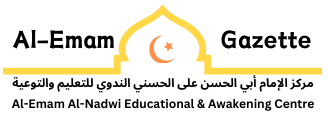Investing in Our Own: A Muslim Shark Tank for Muslim Community Growth
The Challenge: Untapped Potential and Socio-Economic Disparity
Indian Muslims, despite their rich cultural heritage and inherent business acumen, often lag behind other communities in terms of education, economic participation, and overall social development. This disparity stems from a complex interplay of factors, including limited access to quality education, lack of financial resources, along with other factors. While government initiatives and community-driven programs have sought to address these challenges, the need for innovative and impactful solutions remains urgent. Traditional business practices within the community, while often successful on a small scale, frequently lack the resources and strategic guidance needed to scale up and compete in the modern market. This is where a dedicated “Shark Tank” model, tailored to the specific needs and context of Indian Muslim entrepreneurs, can play a transformative role.
The Solution: A Multi-Tiered “Muslim Shark Tank” Initiative
The core concept is to create a series of localized “Muslim Shark Tank” platforms, mirroring the structure and spirit of the original program but adapted to address the unique challenges faced by Muslim entrepreneurs. These platforms would operate at various levels – from local communities, religious groups and mosques to city, district, and even state and country level organizations – creating a robust and decentralized network of support and financial relationships.
—————————-
The Need for a Muslim-Centric Entrepreneurial Initiative:
Problem Identification
India’s vibrant entrepreneurial landscape has been energized by programs like Shark Tank, igniting innovation and fuelling start-up growth. These platforms provide invaluable opportunities for aspiring entrepreneurs to connect with seasoned investors, securing funding and mentorship crucial for success. However, to truly maximize impact, we must tailor such initiatives to address the unique socio-economic realities of specific communities. The Indian Muslim community, facing historical and socio-political disadvantages, presents a compelling case for a dedicated approach. A “Muslim Shark Tank,” designed specifically to support Muslim entrepreneurs, offers a powerful catalyst for community growth and development. This initiative not only empowers budding Muslim business leaders but also presents a unique opportunity for capital holders within the community. By investing in promising start-ups, these individuals can transform dormant capital into actively earning assets, directly contributing to the economic revitalization of their community while simultaneously generating returns. This symbiotic relationship between entrepreneur and investor fosters sustainable growth, creating jobs, boosting local economies, and ultimately strengthening the entire community from within. A Muslim Shark Tank is more than just a funding platform; it’s an investment in the future, unlocking the untapped potential of a community and building a foundation for lasting prosperity.
Sachar Committee Report said:
The Sachar Committee Report, commissioned by the Indian government and released in 2006, highlighted the significant socio-economic and educational backwardness of Indian Muslims. Regarding economic and business activities, the report revealed a stark underrepresentation of Muslims in various sectors. It found that their participation in the formal economy, including government jobs and private sector employment, was far below their population share. Muslims were largely concentrated in low-paying, informal, and often self-employed sectors, facing significant barriers to accessing credit and resources for business development. The report pointed out the lack of adequate representation in managerial and decision-making positions within businesses, further limiting their economic mobility. The Sachar Committee’s findings underscored the need for targeted interventions and policies to address these disparities and promote greater inclusion of Muslims in India’s economic and business landscape.
Recently, while initiatives like ‘Shark Tank’ have inspired countless entrepreneurs across the country, their reach within the Muslim community remains limited. A redeveloped version of this programme, tailored to the specific needs and challenges of Indian Muslims, could serve as a catalyst for change. By providing a platform for Muslim entrepreneurs to showcase their ideas, access funding, and receive mentorship, such an initiative could bridge the gap and unlock the community’s untapped potential.
The Structure of the Initiative:
To ensure its effectiveness, this reimagined “Shark Tank” programme should be designed with a clear focus on inclusivity, legality, and sustainability. Here’s how it could work:
- A Team of Investors: A dedicated panel of investors, comprising successful entrepreneurs, business leaders, and community stakeholders, should be formed. This team would review business ideas pitched by Muslim entrepreneurs and provide financial support, mentorship, and guidance. The investors would not only bring capital but also their expertise and networks to help these start-ups thrive.
- Partnership Model: The investor-entrepreneur relationship would be structured as a partnership. This model ensures that investors are not just financial backers but are actively involved in the business’s growth and success. The partnership would be in strict accordance with Indian laws and regulations, ensuring legality and transparency.
- Legal and Financial Framework: The financial support and partnerships would be meticulously structured to comply with Indian laws and regulations. This adherence to legality ensures that both investors and entrepreneurs operate within a safe and secure framework, fostering trust and reliability. The legal partnership would also safeguard the interests of both parties, promoting a fair and equitable distribution of profits and responsibilities.
- Decentralised Implementation, Community Involvement, More Than One Shark Tank: To maximize the impact, it is essential to have more than one Shark Tank dedicated to supporting Muslim entrepreneurs. Each Jamat/Jamiat (community group) could have its own version of Shark Tank, tailored to their specific needs and circumstances. These could be organized at various levels – group level, sect level, city level, district level, or even mosque level. By decentralizing the initiative, it becomes more accessible and relevant to the grassroots level, ensuring that more aspiring entrepreneurs have the opportunity to benefit.
- Utilisation of Community Resources: A significant portion of the funds for this initiative could be sourced from within the Muslim community itself. Traditionally, Indian Muslims have been involved in trades and businesses, and a considerable amount of wealth is held within the community. Additionally, substantial sums are spent on religious gatherings, processions, and other community events. Redirecting even a fraction of these funds towards entrepreneurial development could create a transformative impact.
Redefining Priorities: From Processions to Progress
Significant amounts of money are often spent on processions and religious gatherings. While these activities have their place, redirecting a portion of these funds towards entrepreneurial support can create a tremendous impact. This reallocation of resources towards fostering entrepreneurship can catalyse economic growth, reduce unemployment, and improve the overall standard of living within the community.
The Potential Benefits
The proposed initiative offers a dual benefit: it would channel underutilised community resources into productive ventures while simultaneously fostering a new generation of Muslim entrepreneurs. Here’s how:
- Economic Empowerment: By supporting start-ups and small businesses, the initiative would create jobs, generate income, and contribute to the overall economic development of the community. Even a modest success rate of 25% could lead to the establishment of hundreds of viable businesses, creating a ripple effect across society.
- Social Upliftment: Entrepreneurship is not just about economic gains; it also fosters confidence, innovation, and leadership. As more Muslims enter the entrepreneurial space, it would challenge stereotypes, inspire younger generations, and contribute to the community’s social progress.
- Community Cohesion: The initiative would bring together investors, entrepreneurs, and community leaders, fostering a sense of collective responsibility and collaboration. It would also encourage the community to prioritise long-term development over short-term expenditures.
- National Impact: The success of such an initiative would not be limited to the Muslim community alone. By unlocking the potential of a significant portion of the population, it would contribute to India’s broader economic growth and social harmony.
Learning from Existing Models:
The proposed initiative can draw inspiration from existing community-driven efforts in the field of education. Across India, numerous organisations and individuals have established free coaching centres, scholarships, and mentorship programmes to support Muslim students in competitive exams and higher education. The same zeal and commitment can be channelled into the entrepreneurial space. Just as these educational initiatives have produced doctors, engineers, and civil servants, a “Shark Tank-style” programme could produce successful entrepreneurs, business leaders, and innovators.
Overcoming Challenges
While the potential benefits are immense, the initiative would need to address certain challenges to ensure its success:
- Awareness and Participation: Many aspiring entrepreneurs within the community may lack awareness of such opportunities or the confidence to participate. Extensive outreach and awareness campaigns would be essential to encourage participation.
- Skill Development: Not all entrepreneurs may have the necessary skills to develop a viable business plan or pitch. Pre-incubation workshops and training programmes could be organised to equip participants with the required knowledge and skills.
- Sustainability: To ensure long-term success, the initiative must focus on sustainable business models and provide on-going mentorship and support to entrepreneurs even after the initial funding stage.
A Call to Action:
Redefining the Shark Tank model to focus on Indian Muslim entrepreneurs can be a game-changer. By providing a dedicated platform, legal and financial support, and community involvement, we can address the socio-economic disparities faced by Indian Muslims. This initiative not only promotes entrepreneurship but also fosters a sense of inclusivity and empowerment. The success of even a small percentage of these ventures can have a lasting positive impact, inspiring future generations and contributing to the overall economic development of the community. By redirecting resources and reimagining priorities, we can create an environment where every aspiring entrepreneur has the opportunity to thrive.
The redevelopment of “Shark Tank” as a community-driven entrepreneurial initiative for Indian Muslims is not just a social or economic imperative; it is a moral one. By empowering the community to take charge of its destiny, this initiative could pave the way for a more inclusive and equitable society. It is time for community leaders, investors, and policymakers to come together and turn this vision into reality.
In conclusion, the potential of such an initiative is immense. By harnessing the power of entrepreneurship, Indian Muslims can break free from the cycle of underdevelopment and contribute meaningfully to the nation’s progress. As the saying goes, “Give a man a fish, and you feed him for a day. Teach a man to fish, and you feed him for a lifetime.” This reimagined “Shark Tank” initiative is not just about providing fish; it’s about teaching an entire community to fish—and thrive.
As a next step, please show your support by Email, SMS, Comments, etc., so the plan can be developed to the next level.
Ahmad Suhaib Nadvi
Al-Emam Gazette
New Delhi, India



